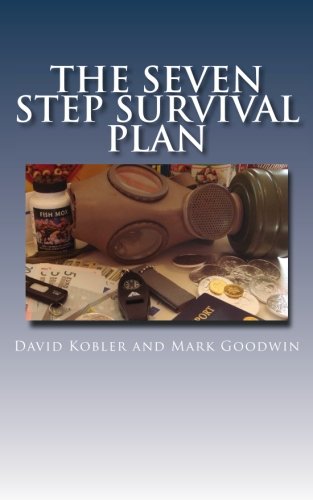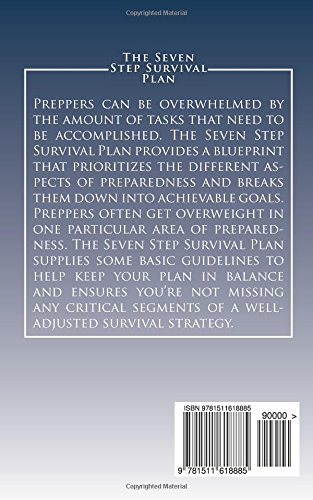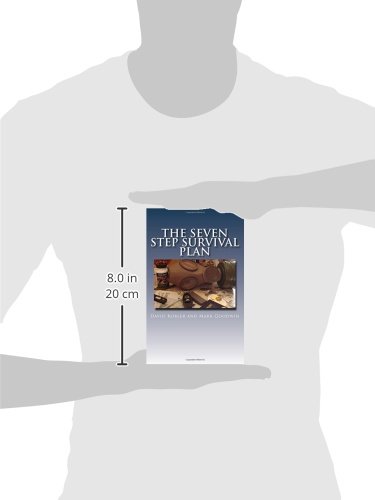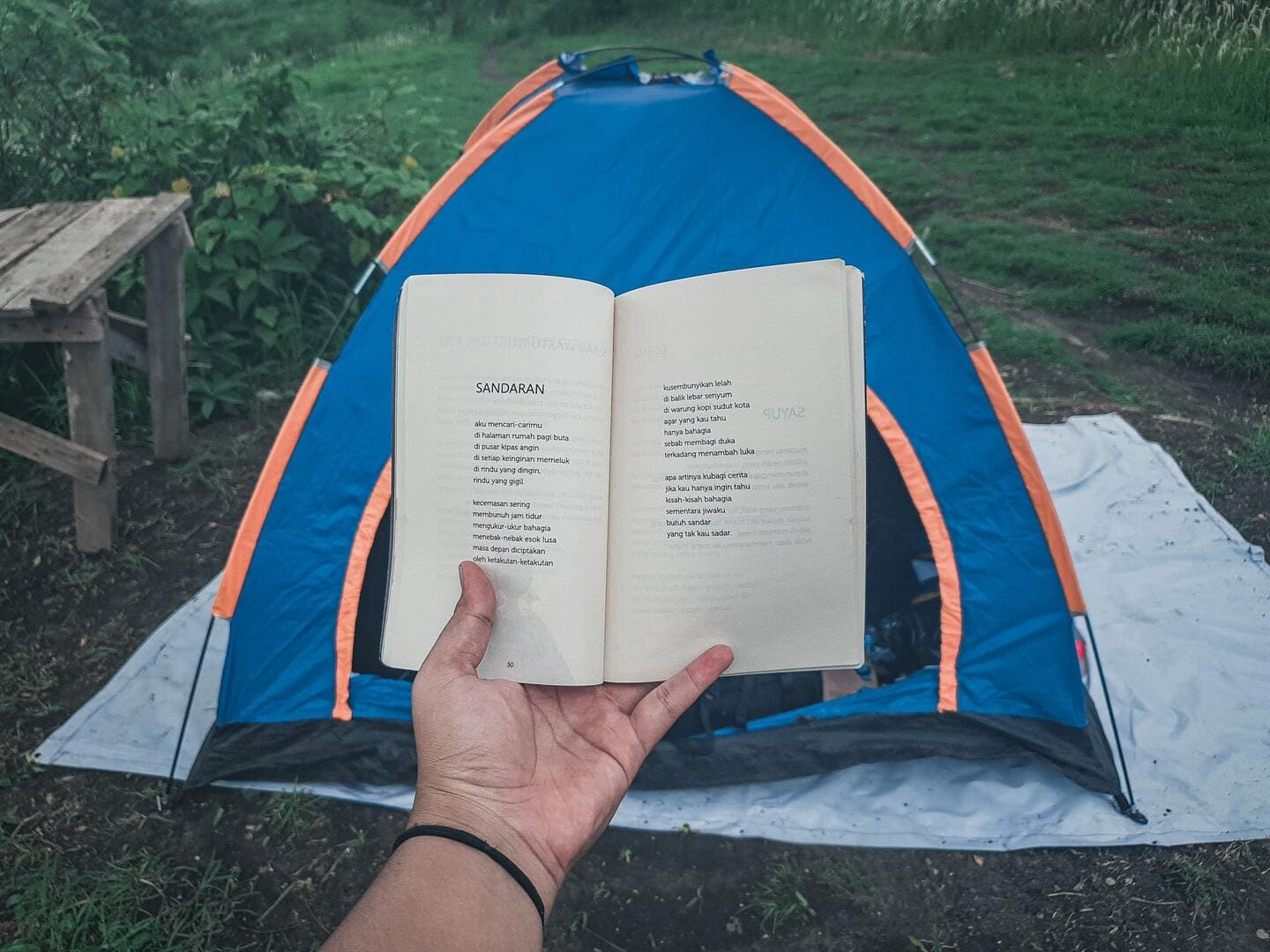Being prepared for anything is the ultimate way to survive a disaster. Having a shelf stacked with the best prepper books means you’ll have a go-to resource when the power fails, or the internet goes down.
They can offer more detail than online articles can, giving you greater reassurance before disaster strikes that you’ll be ready for anything.
Once you get your hands on the best prepper books, you’ll have the peace of mind that you’ll be able to solve even the most unexpected of problems when the time comes.
Books are filled with a breadth of information that isn’t always accessible online. The amount of detail you’ll find in books makes them a useful survival tool in their own right, and if you’re serious about prepping, then building your own library of prepper books should be a priority.
However, with so many prepper books to choose from, you won’t want to waste your time buying books that do more to make you anxious, instead of giving you helpful advice. Practical, straight-to-the-point books will provide you with the best chance of survival.
That’s why we’ve reviewed five of the best prepper books, so you can start stacking those shelves with only high-quality and well-researched material. Take a look at our handy buyer’s guide as well, so you can choose your prepper books wisely.
The Seven Step Survival Plan
Published in 2015, the Seven Step Survival Plan provides advice relevant to modern-day threats and concerns.
Authors David Kobler and Mark Goodwin explore how to deal with cyber-attacks, EMPs (Electromagnetic Pulses), solar flares, and when political conflicts turn to war, along with other potential threats to society.
From this book, you can expect guidelines in a step-by-step style, with advice laid out for you in a simple seven-step plan. The book also helps you to form your own plan that’s unique to you and your lifestyle, while still maintaining basic prepping principles.
In a survival situation, for example when your power goes out, and you’re left with your books and a torch, this book is convenient and easy to read. This is due to its basic, straight to the point writing, which makes it accessible for all of the family and for a range of abilities.
Read the full post_title; ?> review
Pros
- Great for beginners and those new to prepping basics
- Useful advice for technological disasters
- Easy to read and follow at a glance
- Helps you to devise a plan that's relevant to you personally
- Budget-friendly
Cons
- Definite political undertones, which arguably isn't necessary to prepare you for survival
- Some advice might seem 'common sense,' which isn't ideal for advanced preppers
- Not much information on wilderness survival
Survival Theory: A Preparedness Guide
The Survival Theory: A Preparedness Guide book is worthy of your attention.
When following survival advice, you’ll want to make sure it’s coming from a reliable source.
Author Jonathan Hollerman is a writer you can trust, with his experience in the military being the basis for his useful prepping guide.
He was an S.E.R.E (Survival, Evasion, Resistance, and Escape) instructor in the military, and now works as an Emergency Preparedness Consultant, with clients all across the globe. You can’t get much more reliable than that!
His book focuses on preparation for long-term disasters, to help you devise a plan to keep you safe when society crumbles. The advice is well-researched, with references to studies and scenarios to help you understand concepts in more detail.
It covers a wide range of topics, including the best tactical gear, long-term food storage, bug-out locations, and even gives recommendations for survival retreats. If you’re looking for a book that will prepare you for all kinds of potential disasters, and not just gloss over the necessary information, then this could be the book for you.
Read the full post_title; ?> review
Pros
- The author is reliable, with the experience to justify his advice
- Information is well-researched and detailed
- Clearly explains different threats and how they will impact you
- Covers a variety of topics
- Advice is practical, and the use of checklists gives you a good reference point in a disaster
Cons
- In-depth information may be overwhelming for beginners looking for a simple guide
- No index makes it difficult to quickly find specific information
Handbook to Disaster Preparedness for the Family
At 440 pages, the Handbook to Disaster Preparedness for the Family handbook goes into significant detail and covers a vast amount of potential survival situations.
Now in its 3rd edition, the book has been continuously updated to include more advice and guidance, as more threats become apparent. For example, it provides information on how to deal with an Ebola outbreak, financial collapse, or even radiological emergencies.
The information is provided by a trusted source, as author Dr. Arthur Bradley has a Ph.D. in engineering, and currently works for NASA. He has personal experience of several disaster situations and has appeared in the New York Times and on various radio shows.
The book includes practical advice for all of the family, and although it covers plenty of topics, each topic is discussed briefly with straight-to-the-point guidance. It doesn’t suggest expensive or impractical ways to deal with scenarios, and instead gives you realistic and applicable tips written in an easy-to-follow manner.
Read the full post_title; ?> review
Pros
- Explores a lot of potential disaster scenarios, instead of only specializing in one area of survival
- Reliable and trusted author
- Easy to read layout, with hundreds of photographs and tables
- Includes easy-to-copy worksheets to organize a survival plan
- Great for both beginners and experienced preppers
Cons
- Not budget-friendly
- Some customers found the information to be too basic and common sense
The Prepper's Survival Guide: An Introduction to Prepping and a Guide to Fire
Author Bryan Foster (who writes under the penname of Zion Prepper) goes into the fundamental reasons behind prepping in An Introduction to Prepping and a Guide to Fire.
This makes it a great choice if you’re completely new to the concept of survival prepping.
He discusses the 10 Commandments and Five Tenents of Prepping, providing you with a detailed understanding of prepping principles and how to be a successful prepper. An important concept to learn for Preppers is what’s known as the ‘Survival Triangle.’ The Survival Triangle is essentially the main areas to focus on when preparing for disasters, and is made up of the ‘Will to Survive,’ ‘Knowledge,’ and ‘Kit.’
In terms of specialized areas of survival, this book focuses on how to start a fire when you’re without equipment, and what alternatives to use instead. This feature is useful for wilderness survival, and if this is a concern of yours, then this book is a good place to start.
However, it does go into a lot of depth around fire, so if you’re looking for a book that can give you a wide range of advice, this is worth bearing in mind.
Read the full post_title; ?> review
Pros
- Great for beginners who are new to the concept of Prepping
- Discusses essential topics such as the Survival Triangle, which gives a basic understanding of Prepping
- Useful for wilderness survival
- The information is helpful and relevant to realistic scenarios
Cons
- The main focus of the book is around fire, so not ideal if you want more generalized advice on a variety of survival scenarios
The Prepper's Blueprint: The Step-by-Step Guide to Any Disaster
The Prepper’s Blueprint book is designed to cover prepping concepts and survival advice in the most simplistic way possible.
The chapters are split into different areas of preparedness. The first 14 chapters focus on short-term disasters, such as power outages and storms. Chapters 15-31 will then explore more long-term disasters, telling you how to deal with pandemics and economic collapse, for example. The final section centers on serious doomsday preparation, for when the end of the world is imminent.
This breakdown of chapters into different layers means you can easily find the information that you need, which helps to ease anxiety and makes it seem a lot less overwhelming to start preparing.
Each topic has advice in a step-by-step layout, which is easy to follow and works well if you’re new to the world of prepping.
Read the full post_title; ?> review
Pros
- Covers a wide range of survival topics in a balanced way, and doesn't give more attention to particular areas
- Helpful step-by-step advice that's easy to follow
- A good addition to a beginner's library
- Dividing the chapters makes it easy to find information on specific types of disaster
Cons
- There is a lack of pictures and diagrams
- Some customers have criticized the writing style, claiming that it is too repetitive
Generalized vs. Specialized Advice
Prepper books should be easy to read, and shouldn’t discriminate against someone’s ability level. Survival shouldn’t be a specialized skill that only certain people have the privilege of knowing.
Everyone deserves to survive, of course, and with that in mind, it’s important to choose prepper books that aren’t rife with expert terminology and complicated ideas.
When deciding which books to go for, consider whether it will be accessible not only for yourself, but also for other members of the family or friends who you’re likely to be with when disaster strikes.
Even if you feel like a fully-fledged survival expert (which you will be after a visit to our site!), it’s unlikely that everyone will be as familiar with specialist terms as you are. Bear this in mind before choosing a highly-technical book that might cause confusion, and therefore make a disaster situation even worse.
However, if a particular area of survival concerns you more than others, then some prepper books will have a specific focus to them, which is worth considering.
It’s useful to have variety on your shelves, so if you’re looking to buy an array of books, then you could select ones that have a more specialized focus, as well as general prepper books.
Publication Date and a Trusted Author
While a lot of advice for preppers will have remained the same over the years, buying books that are decades old could be detrimental to your survival.
This is because you won’t be able to guarantee the reliability of the advice, and won’t know whether it is still applicable to a modern-day survival situation.
In current times, there are different kinds of threats that didn’t even exist several decades ago. As technology advances at such a rapid pace, there becomes a more significant threat of power failures, as more electricity is used and becomes more and more incorporated into our daily lives.
However, some well-loved prepper books will likely have been re-released and updated to accommodate modern preppers.
It is also important to evaluate the author’s credibility before you make a purchase. For better, more reliable advice, I’d advise making sure that the author knows their stuff.
This can be assessed in a variety of ways, and we can’t expect all authors to have gone through every disaster known to man. Instead, see if they have a military background, or if they’ve studied survival or a similar field. This usually means their advice has more weight behind it, and is backed up by more than just common sense.
Unnecessary Political Views
Prepper books are something that doesn’t need to get political. When you’re learning about survival and tips on how to stay alive, politicized advice is unnecessary and won’t improve your chances of survival one way or another.
If anything, books with a political leaning could cause danger that would otherwise not happen. In times of disaster, it’s essential not to get swept up in political issues that could deter from your overall safety.
Some books will have right or left-wing ideology embedded into them, which will inevitably detract from the overall message of survival advice.
With this in mind, it’s a good idea to read reviews of the book beforehand where possible, to fully grasp whether the book is neutral in its politics, and therefore more practical and less distracting.
Politics should have no place in influencing someone’s approach to survival, even if it underpins a lot of our daily lives.
No Need For Technology
As you’ll want these books to be physical copies, they should be entirely physical in their practicality as well. This means that there should be no need for technology to be used in addition to the book for developing your knowledge.
Some books may require you to insert a DVD for certain chapters, or to go to certain websites for information. If this is the case, these books are going to be of no use to you in a real disaster situation.
The best prepper books will instead be complete in their own right, and tell you all of the information you need to know without you having to go out of your way to find more out through the use of technology.
Convenient Design
As is essential with most books on survival, they need to be easy to understand. Books that include clear diagrams and illustrations don’t only help to explain concepts more clearly before disaster strikes, but they are also beneficial for when you find yourself in the situation itself.
There will be nothing worse than facing a disaster, turning to your prepping library, and opening your book only to be hit with a wall of text. It can look overwhelming and create further panic when you need answers quickly.
Going Beyond The Books
It’s important not to forget that while books are a great resource, there is no substitute for real-life practice. Once you’ve got your hands on the best prepper books, it’s vital not just to read them and leave them to gather dust on the shelf.
If you’re serious about prepping and making the most out of the resources that you have, then taking the advice and putting it into practice will help you feel as prepared as possible.
Now, it is worth noting that of course not all of the advice can be practiced before a disaster strikes. You can’t always simulate an earthquake or a storm!
However, you can practice your fire starting or hunting in your backyard or the wilderness. By doing this, you can then focus on more complicated tasks once disaster strikes, as you’ll have the survival basics covered.
Recap
While prepping in itself can be a daunting task, so can choosing the best prepper books to help you get started! However, after much consideration, my pick for the best prepper book would be Survival Theory: A Preparedness Guide.
It took the top spot for its use of well-researched information and in-depth exploration of a variety of survival scenarios, and how best to deal with them.
Thanks for reading our reviews of the best prepper books! We hope it’s inspired you to start your own survival prepping library, if you haven’t already.
Please leave any feedback in the comments section below, or if you have any suggestions for future topics, please get in touch with us. We’d love to hear from you!
Good Luck and Happy Survival Prepping!
Share the Love
If you found this post useful, please let others know about it by sharing it.


















